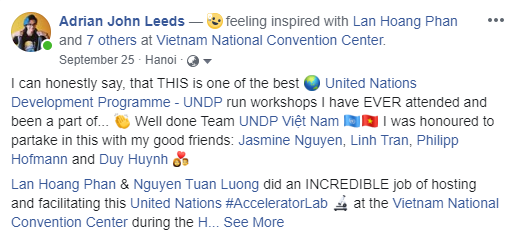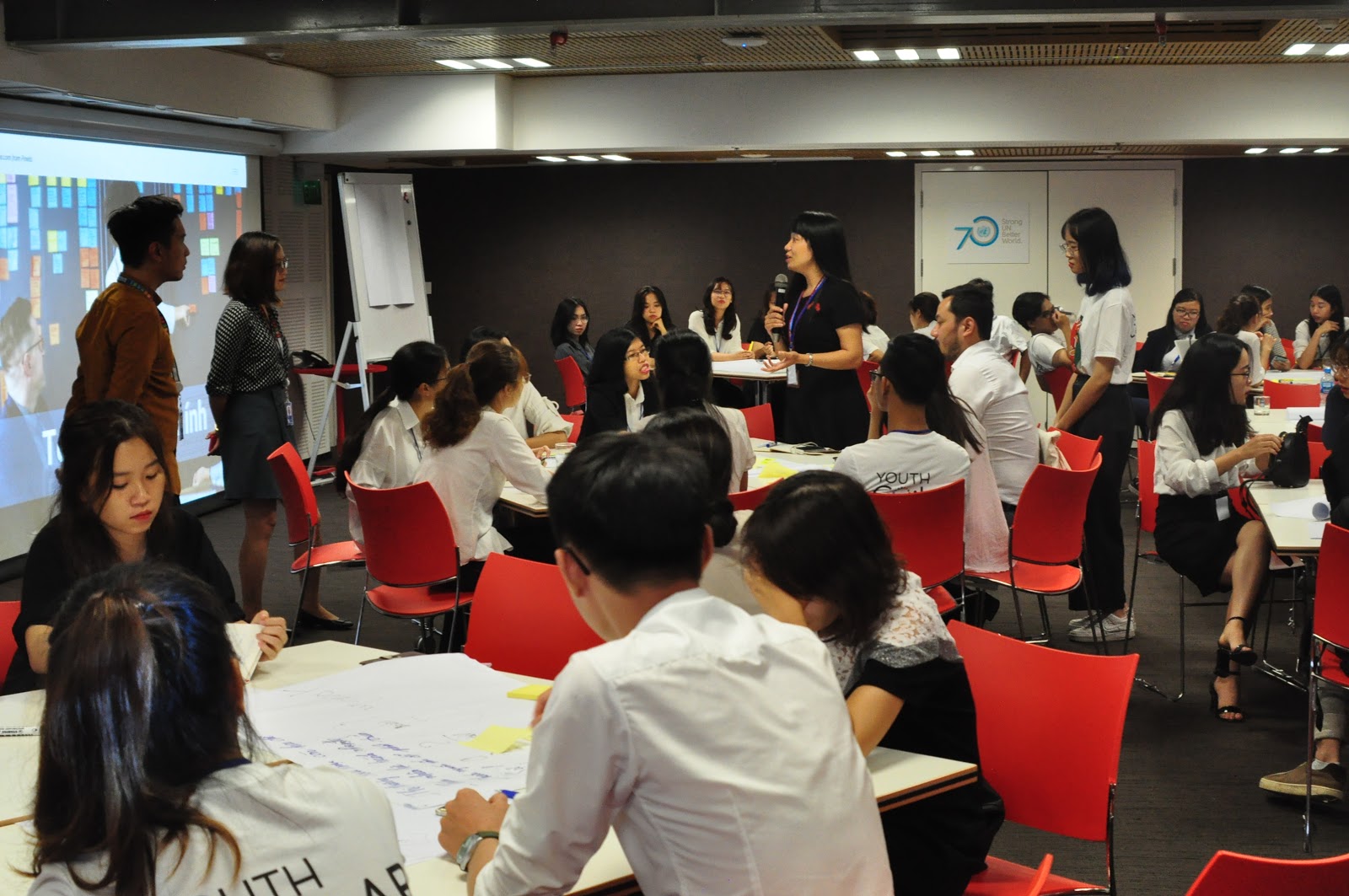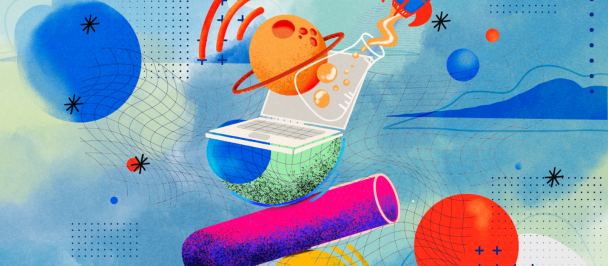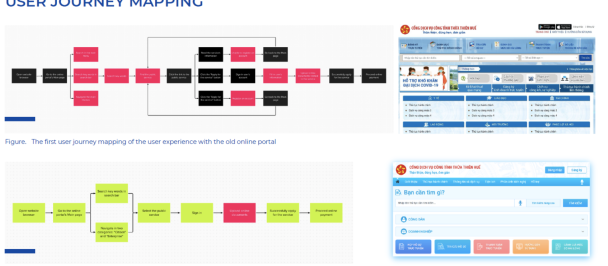by Nguyen Tuan Luong, Head of Solutions Mapping, UNDP Accelerator Lab in Viet Nam
Lost in translation: bringing innovation into development work in Viet Nam
October 31, 2019
Picture this, you just came out of a great workshop or lecture with all kinds of new ideas, you are eager to apply these new insights back to your daily work. Back in the office, you passionately share with your colleagues about how this new concept will change everything ....only to be met with blank stares or confused gazes. This is perhaps a familiar scene for those of us who work on innovation, we talk a lot about abstract concepts -- such as design thinking, inclusive innovation etc... -- in the hope of solving complex issues like environmental pollution and persistent poverty. But on a day to day basis, what does it really mean for development practitioners to bring new concepts and innovation into our work? What is the added value we are creating here?
Translating innovation buzzwords into development practice
The landscape of innovation is full of buzzwords, so much so that the word innovation itself has become a catch-all term for nearly anything “new”. This is even more evident if you are bringing these concepts to non-native English audiences. Since the start of our Accelerator Lab journey, I frequently find myself in the position of importing English innovation jargon into Vietnamese. One of my key learning here is that most innovation buzzwords make very little sense outside of the cultural context that created them. Take the word regulatory sandbox, for example, sandbox here refers to the small box filled with sand where children play and experiment in a controlled environment, thus adding “regulatory” makes some intuitive sense. But what if in your culture, children don’t traditionally grow up playing in a sandbox, how do you translate this nuanced meaning? More importantly, what are the conditions that can allow such a concept to take root in another cultural context?
This isn’t just a matter of linguistic semantics or hiring a better translator. When communicating innovation ideas in the development context, we often use buzzwords as a shortcut to express our ideal vision of the change we want to see in the world. We are advocating for different values -- sometimes new, sometimes already there, but under a different name -- to shift existing cultural norms and institutions. There is this notion of “isomorphic mimicry” in the development field, where we try to build institutions and processes in weak states to look like those found in functional states but without their core underlying functionalities. Simply put, replicating ideas or institutions that work in a developed country into another country contexts without understanding the local cultural norms and practices is not a sustainable path. We run into the danger of selling ideas that are out of touch with reality, causing more harm than good.
From selling ideas to collective listening
It is not enough to talk about great ideas, we need to walk the talk by doing things differently too. We often use Powerpoint presentations, official speeches and board-room meetings to sell new ideas to our partners. These are time-tested ways to advocate our position and certainly have their place. But will this be enough if we truly want to address the complex challenges of the 21st century? To build a better world, Goal 17 calls us to be “supportive, empathetic, inventive, passionate, and above all, cooperative”. In this, our colleagues at UNDP Regional Innovation Center, urge us to change not just the way we talk, but also the way we listen, make decisions and accelerate impact based on the voices of the community and government partners we serve. One effective way I’ve found to tap into the collective intelligence is by employing participatory processes (such as Issue mapping, World Cafe, Open Space Technology, etc…), through which we can generate different types of conversation and ultimately spark the drive for change. After all, people are much more likely to take action if they have a voice in the subject matter and feel listened to.
The proof of the pudding is in the eating
Over the past months, we’ve integrated the Lab approach with existing CO projects, changing the way our events are organized to be more participatory, whenever the setting allows. Case in point, we have empowered many young people joining Vietnam Youth Co:Lab to speak out and share their voice in this manner. These events were designed to be less about us coming in as experts and more about facilitating for their voices to be heard. We utilized Issue mapping to collect audience’s thoughts on the latent drivers behind the lack of social impact businesses in four provinces of Vietnam - Phu Yen, Hue, Ha Noi and Quang Ninh. Weaving this together with the World Cafe format, we facilitated conversations to further understand and search for solutions to address these challenges. The best solutions were then democratically chosen (through dot-vote or Sli.do) and visualized on a board making it much easier to reach a common understanding. But what about the result you may ask? Well, don’t take this from me, you can hear directly from participants in these workshops how it was different for them:
One (definitely not sponsored) participant feedback through social media
Waste Management Workshop - Accelerator Lab
Compared to the conventional setup of a top-down official event, participatory formats help to shift the power dynamics in the room, one that is less about a few expert voices and more about creating a safe space for all voices. Despite some early reservations by some colleagues that Vietnamese are not “used” to speak out our mind, the shift was a welcomed change. Many participants shared in the final reflection that they were energized by the conversations in the room, made new friendships and gained new perspectives on the issue to bring back home.
People were eager to share their views on how to better support social impact businesses during the World Cafe session at Youth Colab
Admittedly, these intangible results, are harder to capture in traditional project reporting, yet these meaningful interactions can be a valuable addition to how we engage with communities. Our colleague Quynh who is leading the Youth Colab initiative share her sentiment as follows: “AccLab has brought the new and creative approach into Youth Co: Lab Sub and National Policy Dialogue on supporting the youth innovators in Viet Nam. It is hard to believe, but [it was] true that everyone in the room has equal opportunities to share and learn, to engage together even though they came from different backgrounds. Thanks to the time, efforts and enthusiasm of AccLab team, we have completed the best-yet policy dialogue sessions.“
Fostering a lasting culture of continuous improvement
The ability to articulate and explain complex ideas in plain language is almost as good as having a superpower. Einstein once said - "If you can't explain it simply, you don't understand it well enough". My invitation for an actionable step to take forward for us innovators is to be mindful of how we are talking about innovation in our work. Are we relying on jargon to advocate for better ways of doing? If so, can we say the same thing in simpler terms?
At the end of the day, new tools and methods that have the “innovation” label attached to them are a means to an end we want to achieve. These tools are only helpful if it helps our colleagues find better ways of doing things or optimizing what’s working well in their current job. Therefore, it matters how we communicate and start these conversations in a meaningful manner, there is plenty of research to back this up too. To make the next innovation stick, perhaps it won’t be about us selling new ideas; rather it will be in how we engage people to listen collectively. But what do you think? What are the conversations that need to happen for your organization to evolve beyond its current capability? Leave us a comment and feel free to reach out at nguyen.tuan.luong@undp.org if you have any thoughts to share on this.
____________
Grateful to my colleagues Phan Hoang Lan, Ida Uusikyla, Nguyen Viet Lan, and GiuIio Quaggiotto for their input. In our next edition, we will take you to the beaches of Da Nang city. The city landfill is on the verge of closing due to overcapacity, a solution needs to be found fast! Our upcoming experiment looks into tackling citizen behaviours, where it might just be the key to effective waste management. Stay tuned for our future update.

 Locations
Locations




